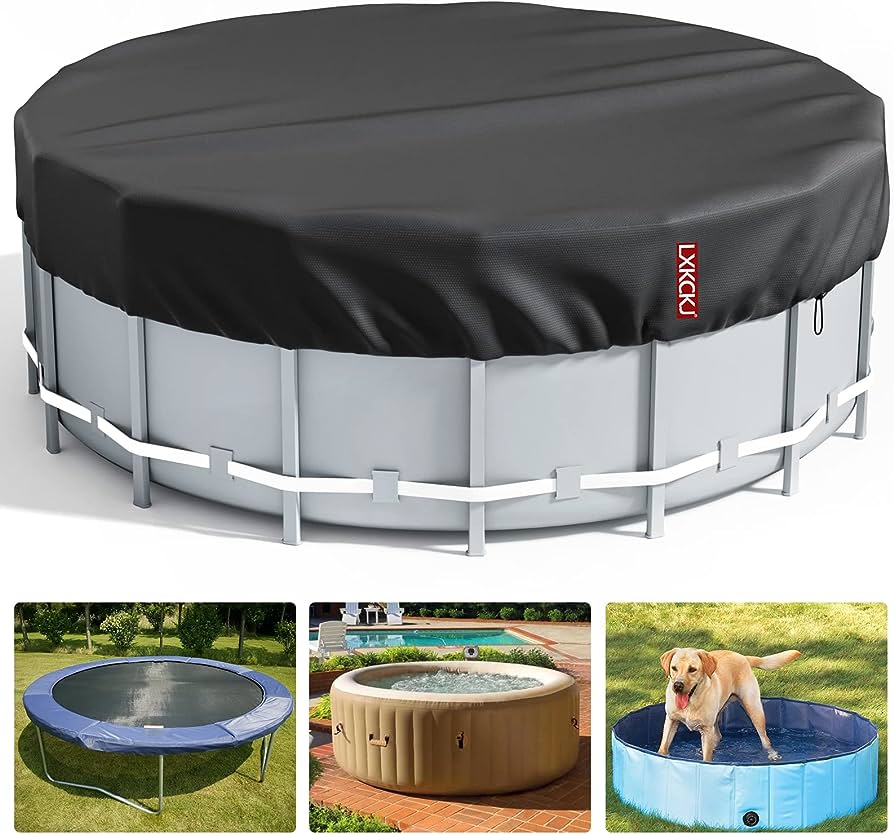Robotic Pool Cleaner Vs Suction Pool Cleaners: The Ultimate Showdown
Robotic pool cleaners are automation devices that clean pools through self-navigation and advanced filtering technology, while suction pool cleaners use the pool’s filtration system to clean. Robotic pool cleaners offer more efficiency and convenience, handling debris of all sizes, while suction pool cleaners are less expensive but may require more maintenance and manual labor. Robotic pool cleaners are becoming increasingly popular due to their advanced features and ability to clean the pool thoroughly without relying on the pool’s filtration system, making them a preferable choice for pool owners. Credit: blog.maytronics.com Understanding Robotic Pool Cleaners Robotic pool cleaners offer a more efficient and hands-free cleaning solution compared to suction pool cleaners. With advanced technology and automatic navigation, they save time and effort while ensuring a thoroughly cleaned pool. Robotic pool cleaners have become increasingly popular in recent years due to their efficiency and convenience. These automated devices are designed to navigate through your pool, collecting debris and dirt along the way. If you’re considering investing in a robotic pool cleaner, it’s essential to understand how they work, their pros and cons, as well as the factors to consider before making a purchase. How Do Robotic Pool Cleaners Work? Robotic pool cleaners are equipped with advanced technology that allows them to perform their cleaning tasks effectively. Here is a breakdown of how these devices work: Pros And Cons Of Using Robotic Pool Cleaners Using a robotic pool cleaner has its advantages and disadvantages. Here are the main pros and cons to consider: **pros:** **cons:** Factors To Consider When Choosing A Robotic Pool Cleaner Before purchasing a robotic pool cleaner, it’s important to consider the following factors: By understanding how robotic pool cleaners work, weighing their pros and cons, and considering essential factors, you can make an informed decision when choosing the right robotic pool cleaner for your needs. Now let’s delve into the comparison between robotic pool cleaners and suction pool cleaners to further explore their key differences and help you make the best choice for your pool maintenance needs. Understanding Suction Pool Cleaners Suction pool cleaners and robotic pool cleaners are two popular options for keeping your pool clean. While robotic cleaners are more advanced and operate independently, suction pool cleaners rely on your pool’s filtration system to remove debris. Both options have their advantages and it’s important to understand their differences to make an informed decision. If you’re a pool owner, you know how important it is to keep your pool clean and properly maintained. When it comes to pool cleaners, there are different types available in the market, each with its own set of features and benefits. One popular option is a suction pool cleaner. In this section, we will dive deeper into understanding how suction pool cleaners work, their pros and cons, and factors to consider when choosing one. How Do Suction Pool Cleaners Work? Suction pool cleaners use the pool’s existing filtration system to collect dirt, debris, and other particles from the pool floor and walls. Here’s a breakdown of how they operate: Pros And Cons Of Using Suction Pool Cleaners Suction pool cleaners offer several advantages and disadvantages that are essential to consider before making a decision. Here are the pros and cons: Pros: Cons: Factors To Consider When Choosing A Suction Pool Cleaner When selecting a suction pool cleaner, there are a few factors to take into account. Here are some essential points to consider: Understanding how suction pool cleaners function, along with their respective pros and cons, is crucial when making an informed decision about which type of pool cleaner suits your needs best. By considering factors such as pool size, filtration system compatibility, debris types, and additional features, you can confidently choose a suction pool cleaner that will keep your pool sparkling clean. Comparing Robotic And Suction Pool Cleaners Robotic pool cleaners offer automated cleaning and advanced features, while suction pool cleaners are simpler and more affordable. Both options have their merits, but the choice ultimately depends on your budget and specific cleaning needs. Robotic and suction pool cleaners are both popular options for maintaining a clean and sparkling pool. Each type has its own set of advantages and considerations to keep in mind. In this blog post, we will compare the cleaning performance and efficiency, energy consumption and cost-effectiveness, as well as the maintenance and ease of use of these two pool cleaner types. Differences In Cleaning Performance And Efficiency When it comes to cleaning performance and efficiency, robotic pool cleaners have the upper hand in several ways: On the other hand, suction pool cleaners also offer some benefits: Energy Consumption And Cost-Effectiveness Comparison When it comes to energy consumption and cost-effectiveness, robotic pool cleaners have both advantages and considerations: Suction pool cleaners also have their own considerations: Maintenance And Ease Of Use Comparison When it comes to maintenance and ease of use, both types of pool cleaners have their own advantages: Robotic pool cleaners offer the following benefits: Suction pool cleaners also offer some advantages: Both robotic and suction pool cleaners have their own benefits and considerations. Robotic cleaners provide superior cleaning performance and efficiency, while also being energy-efficient. However, they come with a higher initial cost. On the other hand, suction cleaners are a cost-effective option with easy installation and low maintenance requirements. Pool owners should consider their specific needs and budget when choosing between these two types of pool cleaners. Cleaning Performance And Efficiency Robotic pool cleaners offer superior cleaning performance and efficiency compared to suction pool cleaners. With advanced technology and intelligent navigation systems, they ensure a thorough clean while saving time and energy. Say goodbye to manual labor and hello to a sparkling pool with a robotic cleaner. Robotic Pool Cleaners’ Ability To Navigate And Clean Various Pool Surfaces: Suction Pool Cleaners’ Effectiveness In Collecting Leaves And Debris: Additional Cleaning Features Offered By Robotic Pool Cleaners: Robotic pool cleaners excel in their ability to navigate and clean various pool surfaces. Their advanced technology ensures thorough cleaning,
Robotic Pool Cleaner Vs Suction Pool Cleaners: The Ultimate Showdown Read More »






